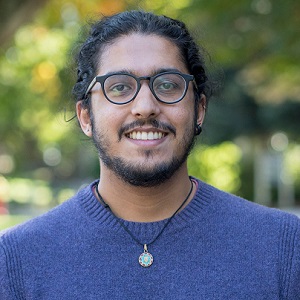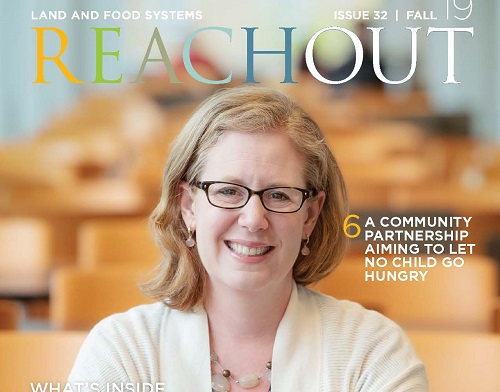
Raahil Madhok
Measuring Tradeoffs When Economics Activity Grows
Raahil Madhok is passionate about understanding the relationships between human activity and climate change. He is a PhD student in Integrated Studies in Land and Food Systems and recipient of the Joseph-Armand Bombardier Scholarship.
In his research, he estimates the economic cost of climate change, the impact of human activity on the environment, and uses big data and data science to hopefully discover something new with these tools and information sources. He is also excited that his research may inform future policy decisions.
“Cost-benefit analysis is the core decision-making tool in environmental economics,” says Madhok. “My research is ultimately about tradeoffs. Greater economic activity is sometimes at the expense of environmental quality, and I am seeking to measure this disconnect.”
Madhok holds a MA in Economics from UBC, and a BA in Economics and Environment from McGill University. He is currently working on three projects based in India:
- The first project aims to estimate the environmental and social costs of coal-fired power plants. As 70 per cent of India’s electricity is coal-based, his goal is to show the consequences for local air pollution and infant health.
- The second project assesses how economic growth and the encroachment of infrastructure into forests affect bird species diversity.
- The third project examines ruralurban migration and agricultural technology adoption. As people move into cities, rural farmers in India are left with less labour. He is studying how farmers adapt, whether they invest in yield-enhancing technology, and the environmental implications of doing so.
Madhok relies on Python and R for analysis and coding. In the biodiversity loss project, he uses data from 13 million
bird-sightings from the eBird app, as well as over one billion pixels of forest cover data from NASA satellite images. In the power plant project, he uses machine learning algorithms to predict the location of power plants based on land features, such as coal mines, elevation, and bodies of water.
Two of his research projects are collaborations with faculty and doctoral students across disciplines and countries. The power plant project is a joint one with Rohini Pande (Yale, Economics), Kevin Rowe (Harvard, Public Policy), and Anish Sugathan (IIM-Ahmedabad, Management). The project on migration and farm technology is a collaboration with Frederik Noack (UBC, Land and Food Systems), Mushfiq Mobarak (Yale, School of Management) and Olivier Deschenes (UC Santa Barbara, Economics).
He hopes that the research does more than just inform, and becomes a tool for decision-making.
“My hope is that it becomes part of an evidence base for decision-makers when evaluating existing or planned environmental policy,” said Madhok. “My research, and that of my colleagues, makes up the decision-making tool for policymakers to allocate resources towards policy with the greatest environmental benefits and minimize costly programs.”
As the financial cost of being a full-time graduate student can be tough, he feels incredibly privileged to be selected for the award. Earning a scholarship was something he had set his sights on for many years.
“I was rejected when I applied in my first- and second-year of studies, so perseverance is definitely worth it.” He is grateful to his Land and Food Systems supervisor, Professor Sumeet Gulati, as well as his former academic mentors, letter-writers, and family members for playing instrumental roles in the process.
Interested in Food and Resource Economics (FRE) research? Check out the website here!
Tagged with: 2019, Food and Resource Economics, Graduate
